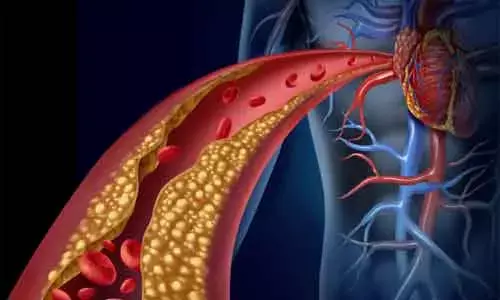- Home
- Medical news & Guidelines
- Anesthesiology
- Cardiology and CTVS
- Critical Care
- Dentistry
- Dermatology
- Diabetes and Endocrinology
- ENT
- Gastroenterology
- Medicine
- Nephrology
- Neurology
- Obstretics-Gynaecology
- Oncology
- Ophthalmology
- Orthopaedics
- Pediatrics-Neonatology
- Psychiatry
- Pulmonology
- Radiology
- Surgery
- Urology
- Laboratory Medicine
- Diet
- Nursing
- Paramedical
- Physiotherapy
- Health news
- Fact Check
- Bone Health Fact Check
- Brain Health Fact Check
- Cancer Related Fact Check
- Child Care Fact Check
- Dental and oral health fact check
- Diabetes and metabolic health fact check
- Diet and Nutrition Fact Check
- Eye and ENT Care Fact Check
- Fitness fact check
- Gut health fact check
- Heart health fact check
- Kidney health fact check
- Medical education fact check
- Men's health fact check
- Respiratory fact check
- Skin and hair care fact check
- Vaccine and Immunization fact check
- Women's health fact check
- AYUSH
- State News
- Andaman and Nicobar Islands
- Andhra Pradesh
- Arunachal Pradesh
- Assam
- Bihar
- Chandigarh
- Chattisgarh
- Dadra and Nagar Haveli
- Daman and Diu
- Delhi
- Goa
- Gujarat
- Haryana
- Himachal Pradesh
- Jammu & Kashmir
- Jharkhand
- Karnataka
- Kerala
- Ladakh
- Lakshadweep
- Madhya Pradesh
- Maharashtra
- Manipur
- Meghalaya
- Mizoram
- Nagaland
- Odisha
- Puducherry
- Punjab
- Rajasthan
- Sikkim
- Tamil Nadu
- Telangana
- Tripura
- Uttar Pradesh
- Uttrakhand
- West Bengal
- Medical Education
- Industry
Atherosclerosis may be delayed by early treatment in familial hypercholesterolemia: Study

Amsterdam: Early initiation of lipid-lowering treatment and achieving treatment targets in patients with familial hypercholesterolemia (FH) may reduce the risk of cardiovascular disease (CVD), reveals a recent study. The study was published in the Journal of Clinical Lipidology.
Familial hypercholesterolemia is a common genetic disorder of lipoprotein metabolism causing premature atherosclerosis. Ultrasound intima-media thickness (IMT) measurements can be used for quantifying the status and progression of atherosclerosis of the large peripheral arterial walls from the early onset. In the study, D. Meeike Kusters, Departments of Pediatrics, Epidemiology and Data Science, Amsterdam UMC Location AMC, Amsterdam, and colleagues described differences in IMT in treated and untreated FH patients versus unaffected controls over a broad age range.
For this purpose, the researchers conducted a systematic literature search using MEDLINE, EMBASE and Trials.gov up to April 2020 looking for studies that addressed IMT in FH patients and controls. The search yielded 558 articles of which 42 consisting of 6,143 participants were included.
Following findings were inferred from the meta-analysis:
- Meta-analysis showed a mean difference between FH patients vs controls of 0.11 mm in carotid IMT, and 0.47 mm in femoral IMT.
- A smaller mean difference was found in carotid IMT in treated FH patients vs controls: 0.05 mm, than in untreated FH patients vs controls 0.12 mm.
- When plotted against age, the mean difference in carotid IMT between FH patients vs controls increases with 0.0018 mm/year.
- This increase was smaller in treated vs untreated FH patients, when compared to controls (0.0023 mm/year vs 0.0104 mm/year, respectively).
"We showed that meani control IMT (treated and untreated) in FH patients is thicker compared to unaffected controls," wrote the authors. "In addition, it was found that the mean carotid IMT increases in FH patients with age to a greater extent than in unaffected controls. The difference in carotid IMT between FH patients and unaffected controls, as well as the increasing difference in carotid IMT with increasing age, is more marked in studies with untreated FH patients than in studies with treated patients."
"The results suggests the benefit of more robust cholesterol lowering or earlier treatment initiation for reducing cardiovascular risk in FH patients. Lastly, the mean femoral IMT in FH patients was found to be increased versus unaffected controls," they concluded.
Reference:
The study titled, "Intima-media thickness in treated and untreated patients with and without familial hypercholesterolemia: A systematic review and meta-analysis," was published in the Journal of Clinical Lipidology.
DOI: https://doi.org/10.1016/j.jacl.2022.01.009
KEYWORDS: atherosclerosis, familial hypercholesterolemia, early treatment, Journal of Clinical Lipidology, lipid-lowering treatment, cholesterol lowering, cardiovascular risk, cardiovascular disease, D Meeike Kusters, intima media thickness, statins, cholesterol, imt
Dr Kamal Kant Kohli-MBBS, DTCD- a chest specialist with more than 30 years of practice and a flair for writing clinical articles, Dr Kamal Kant Kohli joined Medical Dialogues as a Chief Editor of Medical News. Besides writing articles, as an editor, he proofreads and verifies all the medical content published on Medical Dialogues including those coming from journals, studies,medical conferences,guidelines etc. Email: drkohli@medicaldialogues.in. Contact no. 011-43720751


